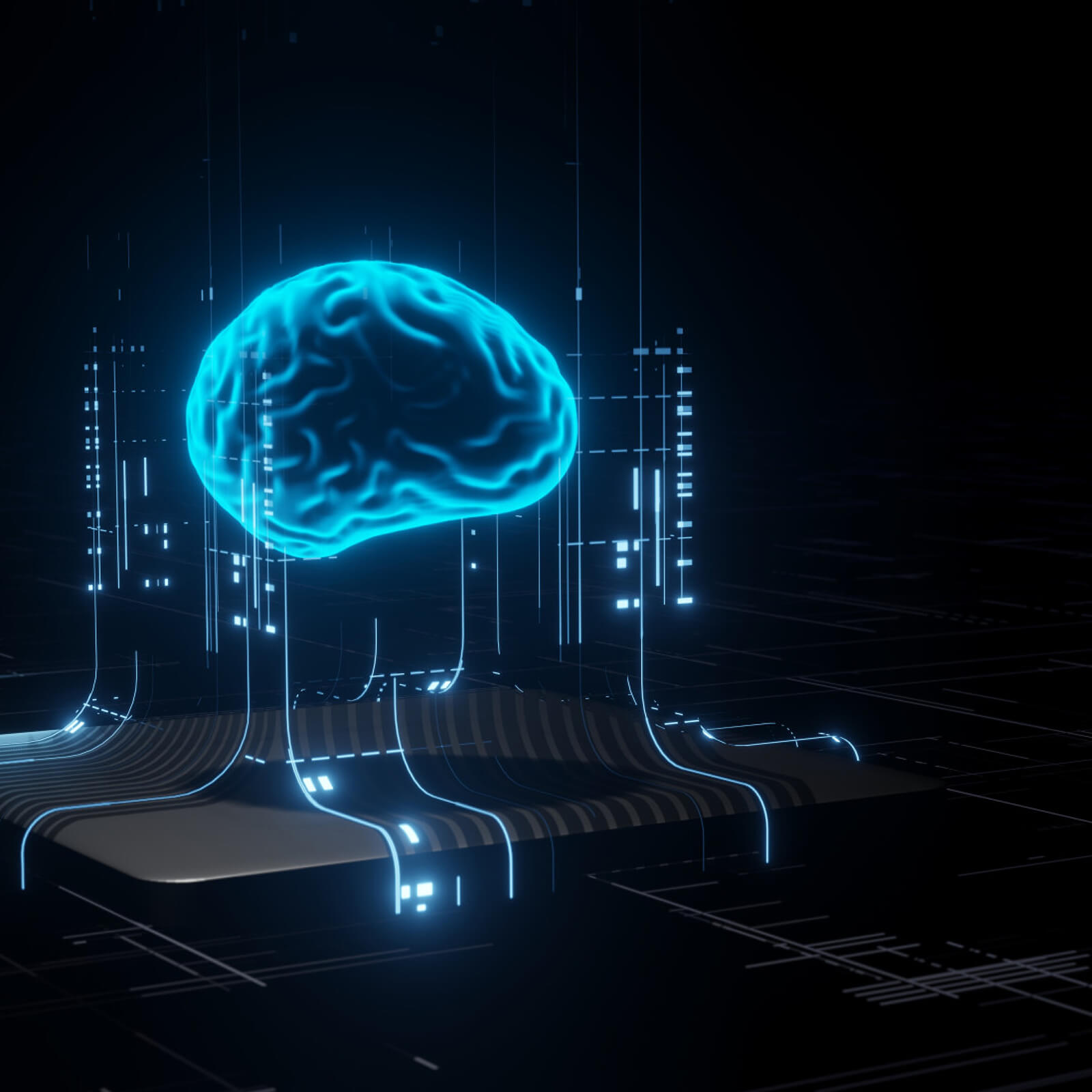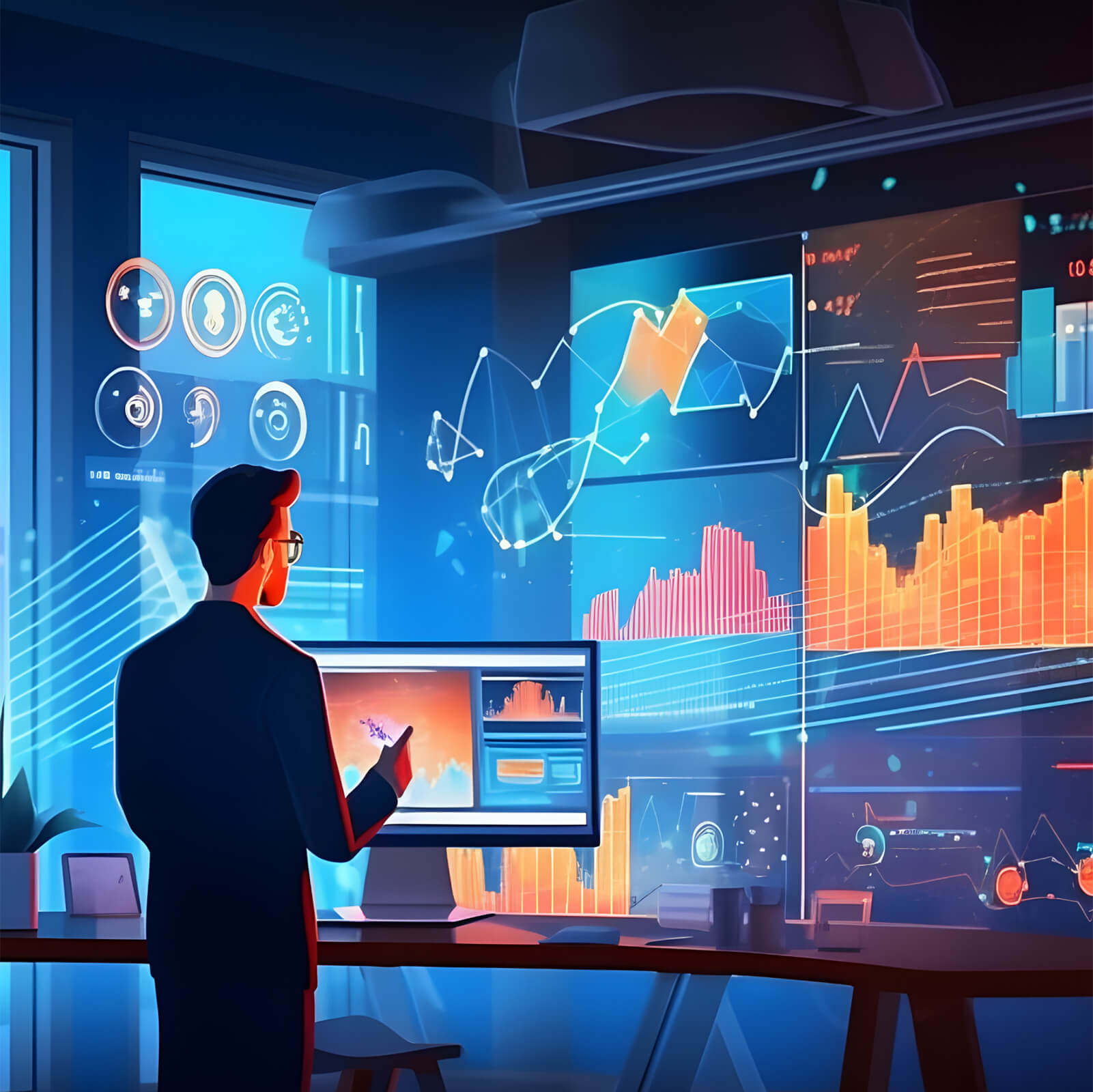Hybrid intelligence – The future of artificial intelligence is here

Artificial Intelligence (AI) is a growing global trend in the data ecosystem. Experts believe that the popularity and usage of AI will continue to grow in the coming decade. AI now impacts all industries, influencing several applications and services to facilitate fast work processes. . According to the International Data Company (IDC), the value of AI will hit the $500 Bn mark by 2024. Thus said, AI will continue to evolve, paving the way for Hybrid Intelligence or hybrid artificial intelligence (hybrid AI), a powerful mix of human and artificial intelligence.
What is hybrid intelligence?
Hybrid Intelligence is a powerful combination of human and artificial intelligence. The technology leverages the powerful abilities of its parent technology and augments them when combined with human capabilities.
Though some of its elements are similar to AI, the tasks hybrid intelligence does are different. For example, there are numerous problems that machine learning (ML) or AI fails to solve as they require human elements to carry out decision-making, planning, or creative tasks. AI and ML have difficulties adjusting to dynamic conditions, self-adjustment, or what we call ‘common sense’. While human intelligence can be applied in all kinds of situations, AI sticks with specific cases. AI works well for detailed, well-defined tasks under controlled environments. AI needs bulk data for training, compared to humans, who need just a few cases. Hybrid artificial intelligence systems combine the analytics and automation capability of AI technology with human intellect, making it a powerful technology that is more than the sum of its parts.
Why is hybrid intelligence important?
While AI excels at performing precise, well-defined tasks in a controlled setting and using specific data sets, it has limitations in its scope. On the other hand, human intelligence is extensive and can learn from fewer instances. Humans do not operate on specific data sets like soft data, while AI requires data in bulk, giving human intelligence a distinct advantage.
As AI and human intelligence work on two different algorithms, each excels in areas where the other might fail. While AI and ML outperform humans in understanding complicated patterns, human intelligence works best when there is some noise or ambiguity in the data set or when situations change unexpectedly. Hybrid intelligence systems give you the best of both worlds. According to PWC research, 67% of executives believe that hybrid intelligence is the future of artificial intelligence and an upcoming game changer in industries and data analytics.
Here is what makes hybrid intelligence important:
AI is here to stay
AI is already creating ripples in all industries and sectors. It will continue to power a wide range of applications irrespective of the field. According to PwC’s 22nd Annual Global CEO Survey, over 77% of companies surveyed are investing in artificial intelligence or plan on funding it over the next three years to boost their business operations. AI is now a part of our lives and will continue to influence us for the better. With the advent of hybrid artificial intelligence systems, AI will get stronger and perform tasks even more efficiently.
AI will change jobs
With the advent of AI, losing jobs has become a concern for many in the workforce. People often wonder if hybrid intelligence and humans could even coexist together. Yes, AI and automation will bring a change in employment. Though AI is creating ripples in the employment market, it’s unreasonable to assume that it will take over all our jobs. Hybrid AI and automation will take over a few manual jobs while creating a demand for another set of jobs. AI could take over tasks that are tedious and repetitive. With robotics, a business can automate jobs that are hazardous to humans, like manual sewage cleaning or working in dangerous mines. In essence, hybrid AI augments human capabilities to perform tasks.
Rise of a new division of labour
When hybrid AI takes over certain job roles, a new line of employment is born. Some tasks require human effort or cognitive thinking. Our brain is able to do specific tasks using computational skills and others without them. While AI can replicate and augment the tasks requiring calculation and analysis, the human element becomes crucial for others. Hybrid AI creates a new line of jobs that require human effort to handle the AI to maximize business productivity.
Skills we need to master hybrid AI
Artificial intelligence will take over menial and tedious tasks, freeing humans to perform what they are best at – critical and creative thinking, exploring new possibilities with their imagination, and crafting meaningful connections.
The demand for hybrid skills is on the rise, demanding both technical and non-technical capabilities. According to studies, people with higher cognitive skills, social skills, decision-making, critical thinking, abstract thinking, communication and collaboration, and empathy are in greater demand than before. With hybrid intelligence and artificial intelligence becoming more popular, organizations seek employees, particularly for STEM (Science, Technology, Engineering, and Mathematics) jobs, with new skill sets.
Here are a few skills that organizations seek:
Digital skills
Digital skills don’t always mean that one should start learning coding or machine learning unless it’s for a career in IT or data analytics. Possessing digital skills means that one must have a general understanding of how to handle data, how interpret it, and make informed decisions based on analytics. While employees with hardcore coding or machine learning skills work within specialized departments, organizations now expect all their members to be comfortable around data. Employees must have basic knowledge of data visualization or representation, data science, or how AI works. Digital skills are the need of the day.
Problem solving skills
Today, data is available in abundance, and there are enough AI and ML algorithms to process them. However, one critical skill that organizations expect from their employees is to provide answers almost instantly and ask relevant questions regarding problems that need to be solved. Employees have to thoroughly examine and analyze solutions instead of accepting them without question. Hybrid AI demands that employees have the problem-solving, critical thinking, and lateral thinking skills to approach problems and solutions from various angles.
Decision making
It’s not enough to just gain insights from data and analytics, one must know how to use them. In today’s competitive world, making timely and critical decisions is crucial to the success of a business. With hybrid artificial intelligence becoming a norm for organizations, decisiveness becomes an essential skill for employees.
Communication and collaboration
Businesses are becoming increasingly more sophisticated by the day, giving rise to new multidimensional issues. The practical solution to these challenges involves communication and collaboration between employees from different backgrounds and skill sets. Organizations seek to leverage their diverse backgrounds to tackle these complex, multidimensional problems, and that’s why they look to hire employees with good communication and collaborative skills.
Abstract thinking, creativity, and imagination
Artificial intelligence cannot mimic unique capabilities of the human brain like abstract thinking, creativity, and imagination. Our human brain has impressive skills when it comes to making speculations and extrapolations, which is what drives creativity and innovation. When our thinking goes beyond our mere observations, we push our power of imagination, breaking the existing boundaries of problem-solving and creating new solutions.
Empathy
Organizations strive to understand the needs of their customers and deliver the requirements. This power comes from human empathy, giving them opportunities to build relationships and create engagement with customers and colleagues.
The future of hybrid AI
Today’s artificial intelligence is still not quite capable of perfectly mimicking human behavior, conversing sensibly on several topics, picking up objects, or recognizing human emotions. While we program computers for specific tasks, human intelligence applies existing knowledge to new surroundings. While the future is still uncertain, AI banks on hybrid intelligence for its success. Hybrid AI brings the best out of both human and artificial intelligence, making work smoother and more productive. The future is hybrid collective intelligence in a human–AI society.
Want to know more about hybrid intelligence and how it benefits your business? Let’s take a step further.
Case Studies
Let our work do the talking
Learn about the instances where we were able to create an impact, raising the bar on the standards we set for ourselves.

PiServe — Revolutionizing the versatility of technology in the corporate world
Curated Technologies. Design at Heart. Rapid business Transformation
Insights
The information technology times
Have a read on groundbreaking figments of imagination of the brightest minds that have been brought to life.
How can we help you?
Get in touch and let’s find out how we can curate our offerings to match your organization’s needs.
Get in touchSign up for our latest insights.
Never miss an insight. We’ll email you when new articles are published.
Subscribe.
Thanks for subscribing to PiServe Insights.
Please fill in the details.










